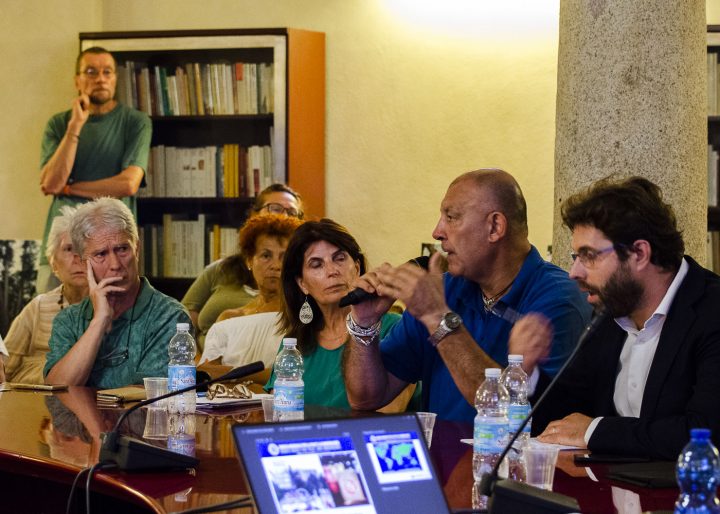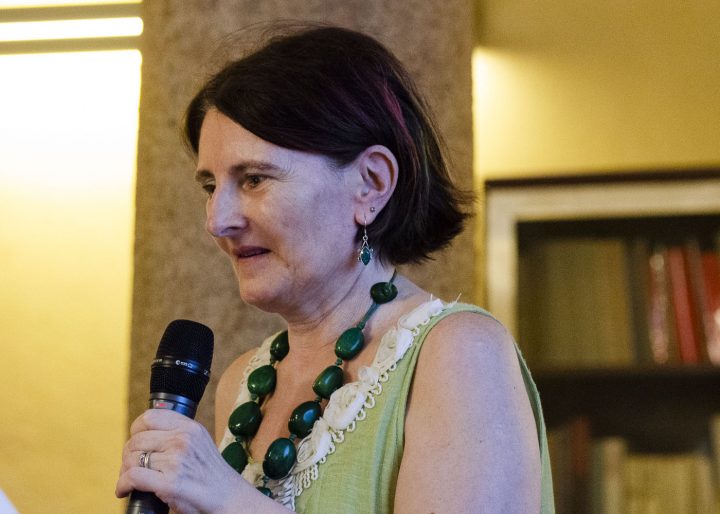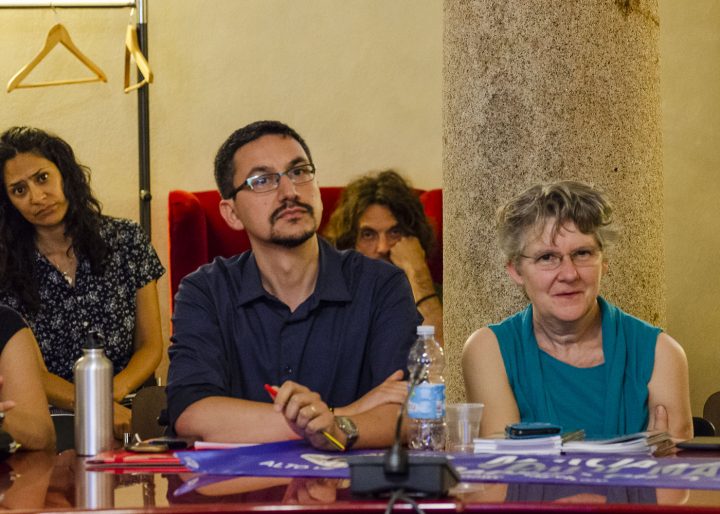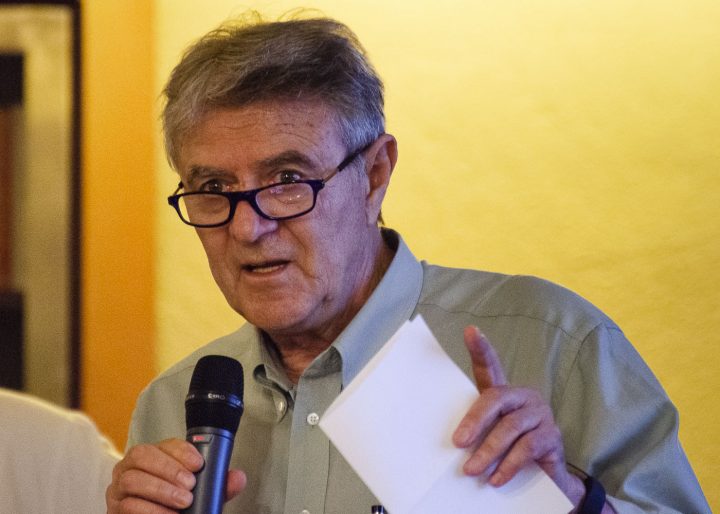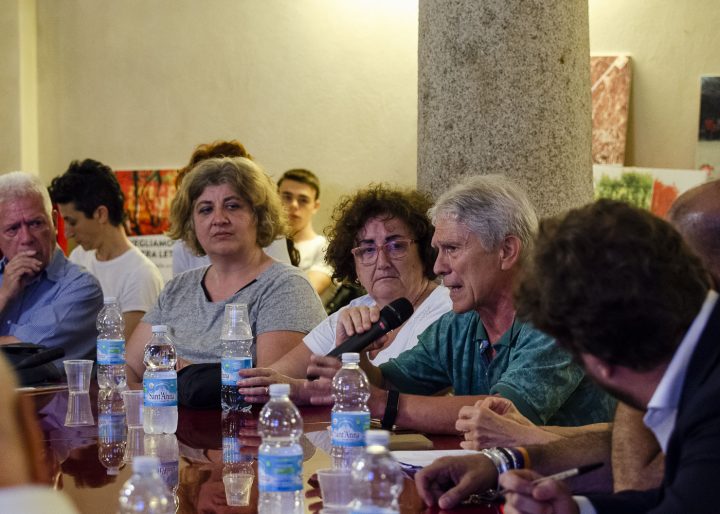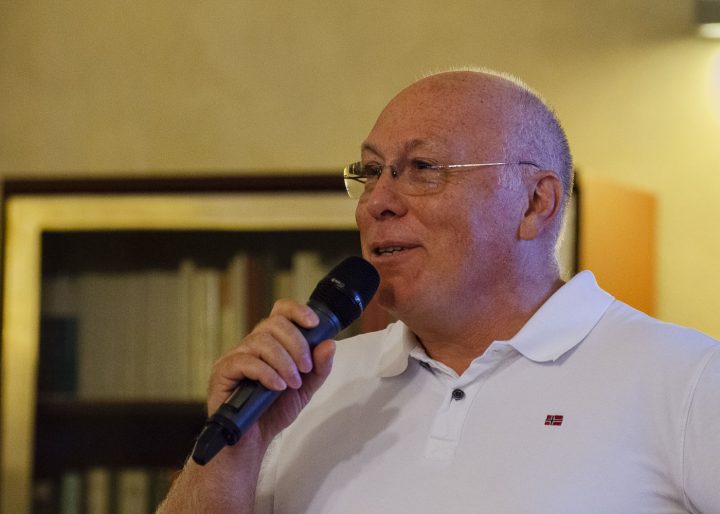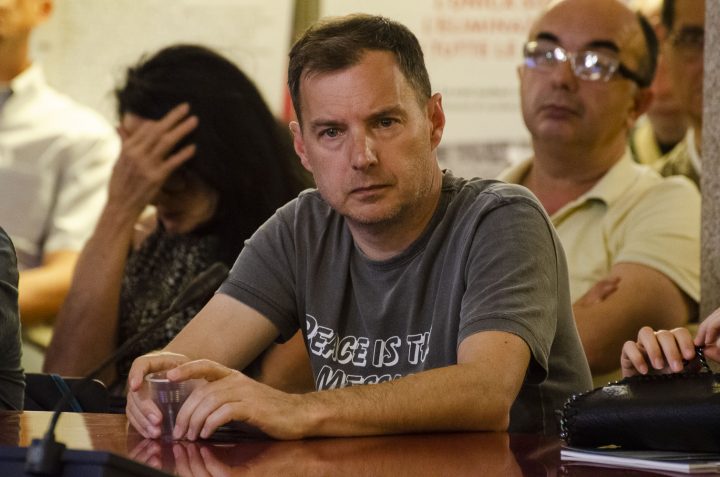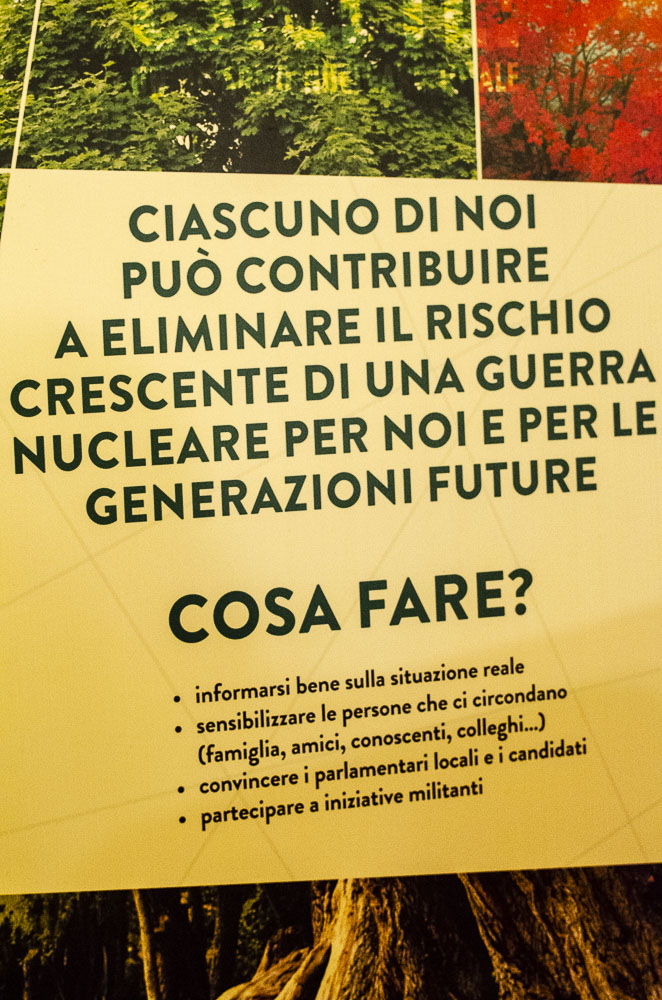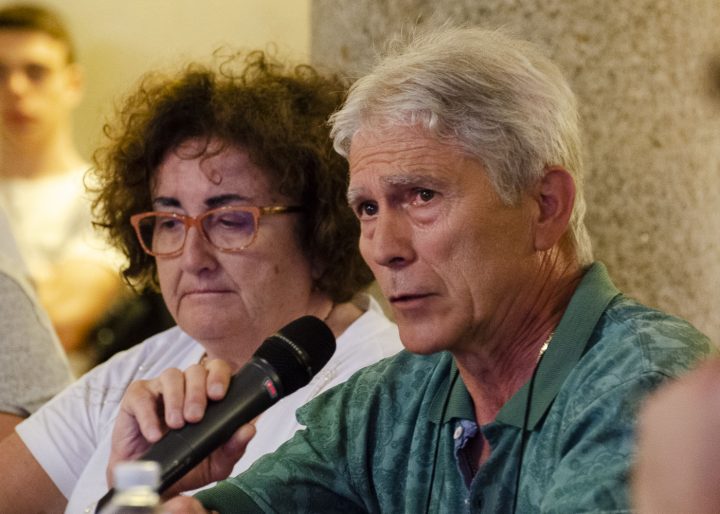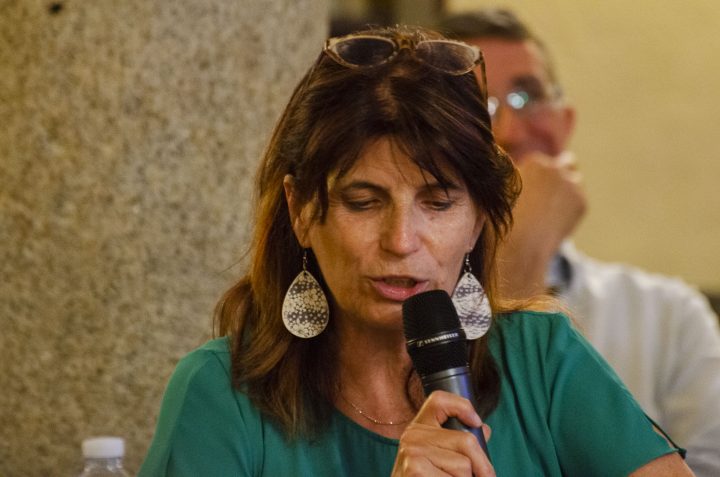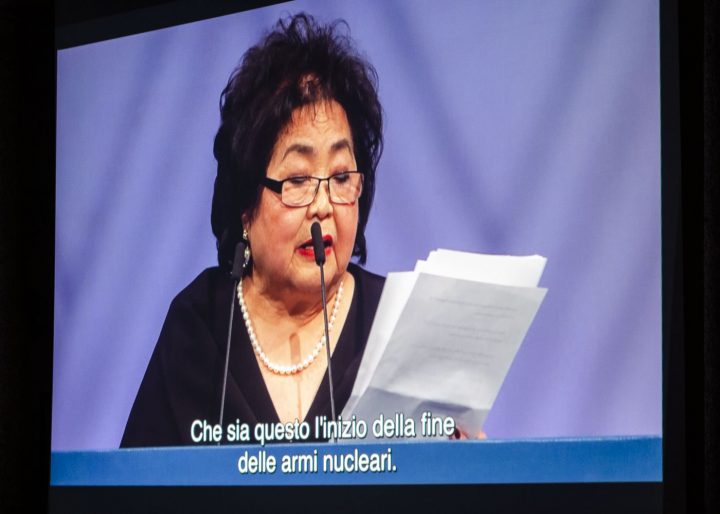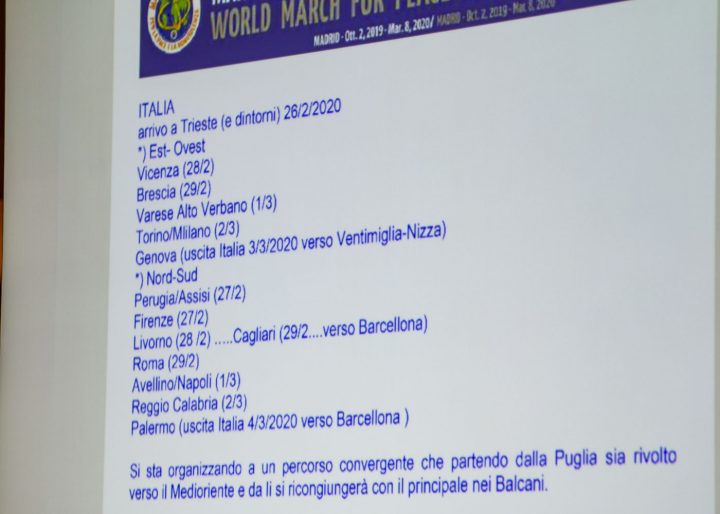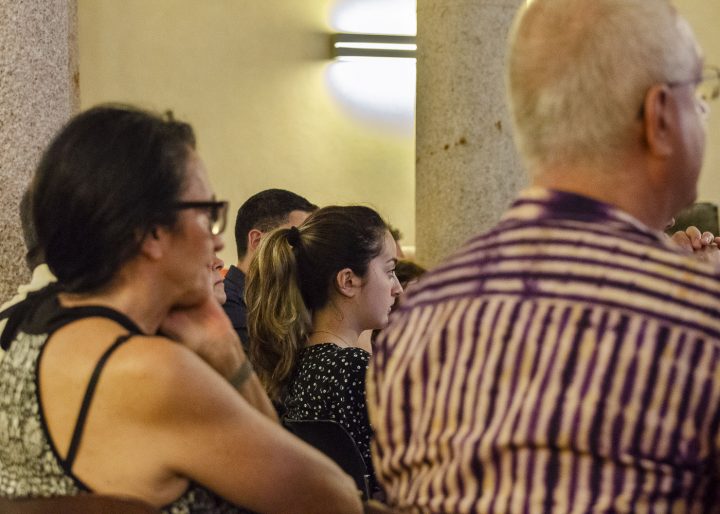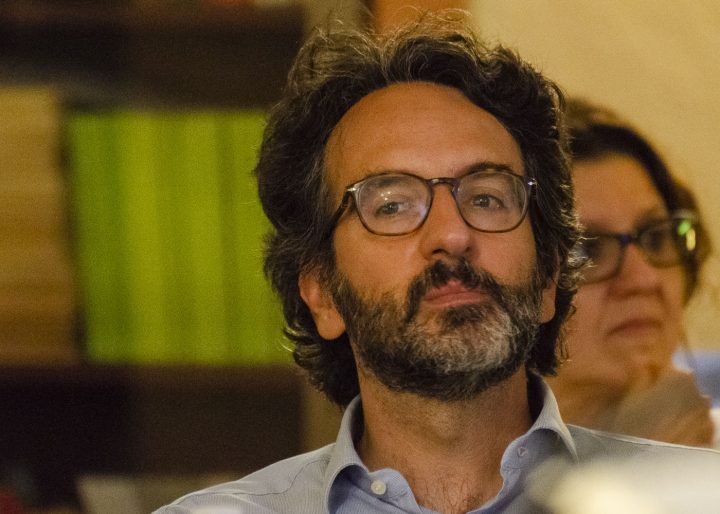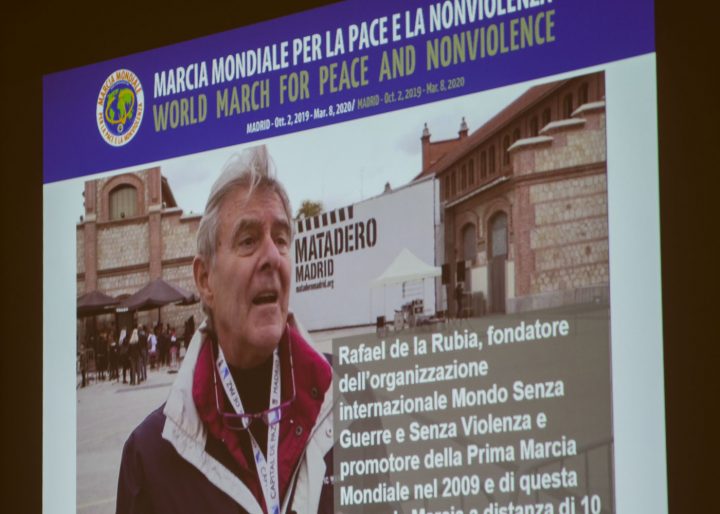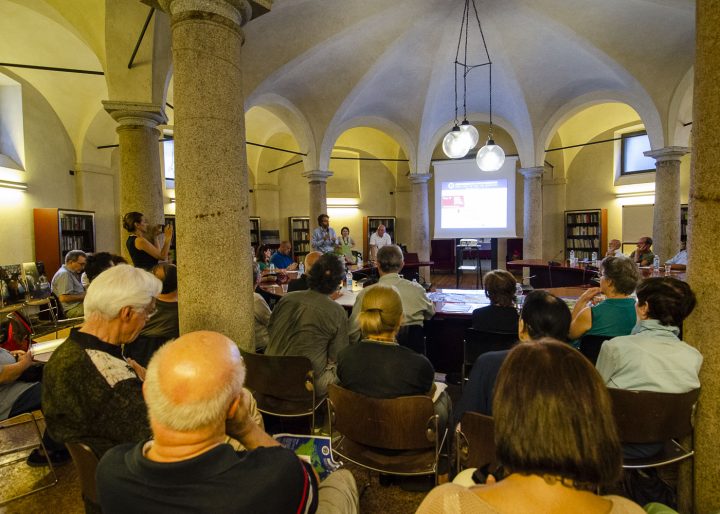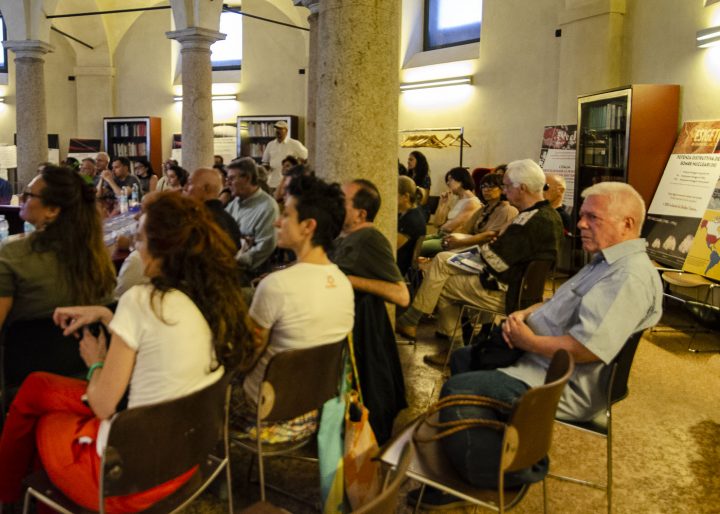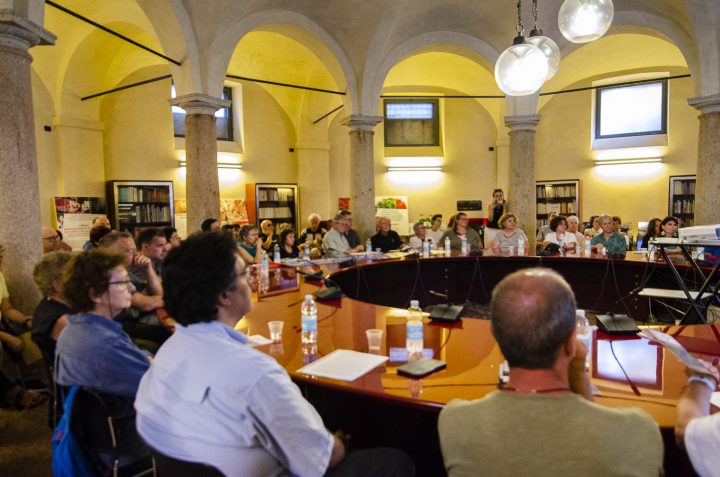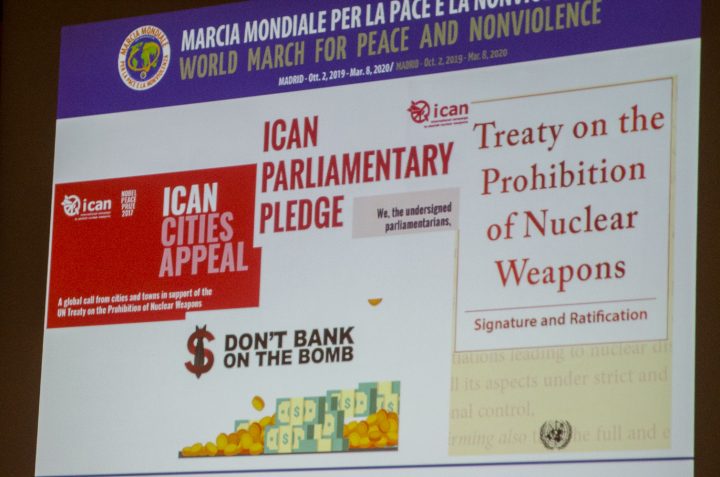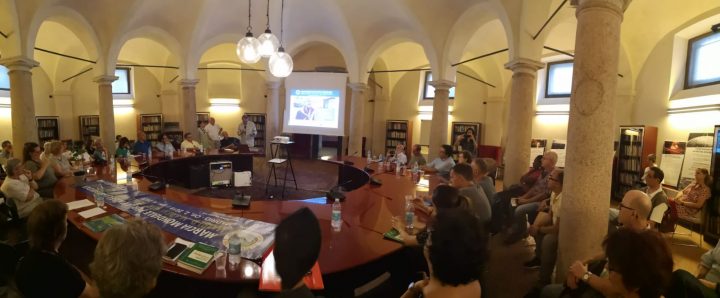On Tuesday, July 9, the emotional Italian premiere of the documentary “The Beginning of the End of Nuclear Weapons” took place in Milan, in the Lazzati room of the Ambrosianeum Foundation. Sitting around a large oval table, activists and representatives of institutions watched the film in an unusual setting that favoured a circular and egalitarian debate afterwards.
After the brief introduction by Silvio Bruschi, the documentary’s Italian distributor, Rafa de la Rubia, promoter of the World March for Peace and Nonviolence talked about the issues that have been added to the central theme of disarmament, such as human rights (with particular attention on the dramatic question of refugees), the environment, non-discrimination and the need to refound the UN. The March will even visit the Arctic and the Antarctic and will see, during its journey, conferences and initiatives capable of involving the new generations and mobilizing the consciousness.
Tiziana Volta, coordinator of the March’s Italian Organising Committee, briefly described the route that will be taken through Italy at the end of February 2020, split into different sections: north-south and east-west. Many initiatives are planned in several Italian cities, including the “Mediterranean Sea of Peace” with a conference on refugees that will probably be held in Palermo.
Tony Robinson, long-time editor of Pressenza and producer of the film, talked about the current situation regarding nuclear weapons: we are at the mercy of 9 countries that bully the rest of the world by terrorizing it with the atomic suicide. Tracing the path that led to the approval of the Treaty on the Prohibition of Nuclear Weapons (TPNW) on July 7, 2017, the documentary shows what can be done to defeat these bullies that put at risk the very survival of the planet and humanity.
After the screening, marked by moving and inspiring moments and followed with attention and interest, there were several interventions, all linked to the focus defined at the beginning of the meeting: proposals and commitments to raise public awareness of nuclear disarmament, a taboo theme, ignored or manipulated by the mainstream media, yet vital for the survival and evolution of humanity.
Giovanna Pagani of WILPF Italy, who participated in the process leading up to the approval of the TPNW, described it as a demonstration of what civil society can achieve through pressure and the work involving diplomats and institutions. This was echoed at a more local level by Elio Pagani, who spoke about the thousands of signatures supporting the treaty which were brought to the Ministry of Foreign Affairs, clashing with an Italian foreign policy completely subjugated to NATO and its boycott of the TPNW.
The involvement of cities and regions, of mayors and parliamentarians, as witnessed by the institutional representatives present (the municipal councillors of Milano Limonta, Bertolè and Barberis, the mayor Fazio of Germignaga, in the province of Varese and Antonio Trebeschi, mayor of Collebeato, in the province of Brescia), is fundamental. There were no vague speeches, but specific commitments to involve their territories in the themes of the March, providing space and working to involve networks of cities already active on issues such as human rights, peace and the environment.
Other activists from Varese and Turin spoke about experiences of coordination between very different associations in order to put pressure on institutions to approve motions on disarmament. The importance of work in schools (and in this sense the documentary can be an excellent tool for raising awareness and information) and photographic exhibitions such as that set up in the room on the evening by “Demanding Disarmers” and WILPF was also stressed.
Another fundamental theme, often touched upon in the documentary and mentioned by Tony Robinson in his final intervention, concerns what citizens, universities and municipalities can do to withdraw investments from banks linked in any way to the war industry. Disinvesting, educating, becoming informed and participating: these are, in short, the lines of action contained in all the interventions. The documentary and the Second World March for Peace and Nonviolence, which will start from Madrid on October 2, are a tool and a framework for doing all this.
For more information on the documentary and/or to organize screenings in Italy contact Silvio Bruschi Silvio.bruschi@pressenza.com
